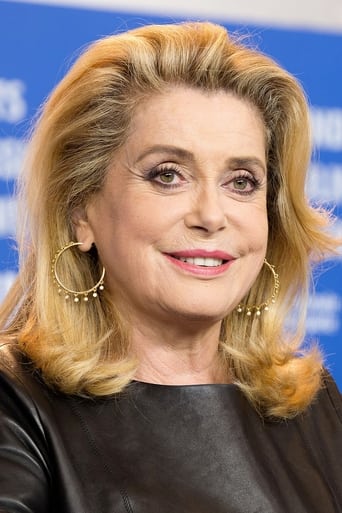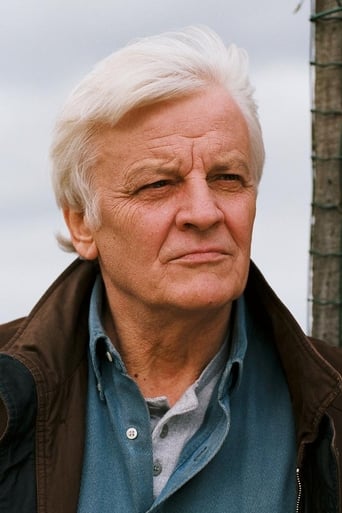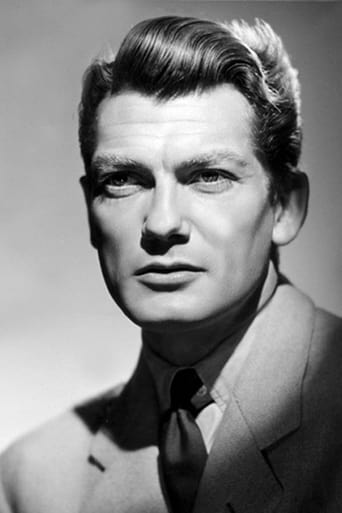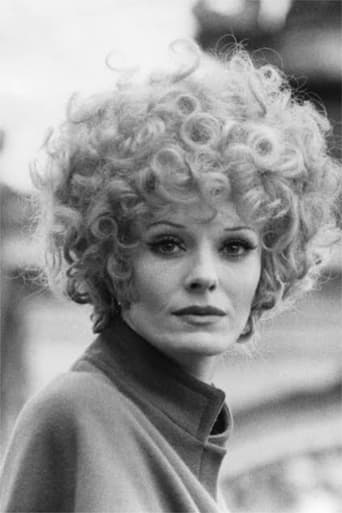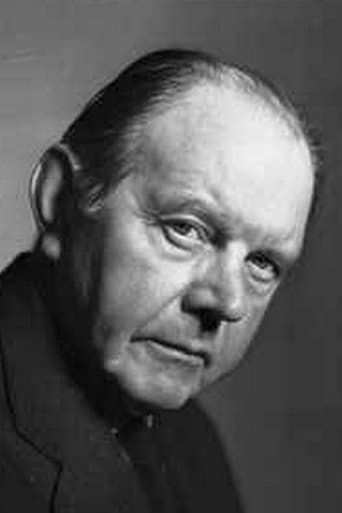Softwing
Most undeservingly overhyped movie of all time??
Phonearl
Good start, but then it gets ruined
Claysaba
Excellent, Without a doubt!!
Aubrey Hackett
While it is a pity that the story wasn't told with more visual finesse, this is trivial compared to our real-world problems. It takes a good movie to put that into perspective.
invisibleunicornninja
For some reason when I was little, my mom put this on for me to watch all the time. I don't know why. This movie is terrible. The story basically goes like this - a princess's mother dies, then the king decides to marry her (even though they're father and daughter). A fairy godmother comes to the princess, tells her that you can't marry your father, then grants her a couple of wishes. The princess falls in love with a prince and he with her because the other is pretty. After a series of dumb and convoluted events (including what I'm assuming is a dream sequence they both experience - its not very clear what that montage was) they live happily ever after? I'm assuming. After the initial events this story gets a little muddy. I'm pretty sure there's a scene with a helicopter (or maybe it was some kind of magical transporter thing - I'm not rewatching this thing to check) despite most of this movie taking place in what looks to be medieval times. If you are a fan of movies, logic, entertainment, or if you're just sane, then I'm sure you can see why this movie's "story" is terrible. Ignoring that, the sets and costumes are barely serviceable, the acting is bad, and the sound design is atrocious. Do not watch this movie, except maybe out of curiosity.
moonspinner55
Ridiculous, sub-Cocteau French fairy tale with songs has Catherine Deneuve playing a runaway princess. Her father, the widower King, has made a deathbed promise to the dying Queen that he will only remarry should he find a woman lovelier than she. After rejecting all the single ladies in the land, the only lass able to meet his demand for a beautiful wife is his own daughter (the King asks the local soothsayer, "Is this a sinful love?", to which the soothsayer says, "If I had a daughter, I'd marry her."). Director Jacques Demy, who also adapted the children's story by Charles Perrault, was possibly filled with whimsy (or perhaps was suffering from a bout with childlike prankishness). His work is heavy-handed with a tale already steeped in the grotesque. Delphine Seyrig as the Lilac Fairy gives her early scenes a bit of real color (as opposed to the artificial sparkle hanging over the rest of the film), but Deneuve is wasted. She's a beauty, but the movie is beastly. *1/2 from ****
Swift-12
The heroine is a Princess whose widowed father (the Blue King) is forced to remarry and realizes no one but she can surpass the beauty of his beloved dead Queen. The girl is horrified by his proposal, but advised by her Fairy Godmother she concocts impossible conditions for the King to meet -- which incredibly he performs. The last sacrifice is to skin his prized donkey, which has yielded daily treasures of gems and gold in place of manure. Gradually she sympathizes with him and readies herself to the idea of matrimony, but the Fairy devises her escape and the Princess leaves incognito, wrapped in the filthy donkey skin. Hiding in a distant village in another realm, the regal girl is now treated as the lowliest servant. Enter the young Prince of the Red Kingdom as he passes through. He is feeling the melancholy of loneliness and ready for True Love which eludes him. He wanders through the wood and is led magically to the Princess and sees through her disguise. They do not actually meet, but the rest of the story involves the delicate steps towards restoring her to nobility, acceptability, and betrothal. It's a very charming musical fairy-tale, teeming with metaphors as children's stories often do. Jacques Demy was very influenced by and pays homage to Jean Cocteau, utilizing many of his simple camera techniques (elegant and mysterious if done artfully .. or if performed clumsily will look like hack work): slow-motion, reverse motion, on-set trickery (like actors dressed and built into the set as living magical statues). Like Cocteau's fantasies, Demy has achieved a poetic level here. His use of color is glorious -- the strong Blues that dominate *everything* in the Blue Kingdom (or the Red color scheme for the Red Kingdom) -- and the shift to All-White in the finale -- dresses that illuminate their own light or have moving clouds projected upon them -- the fairy god-mother whose dress changes color on a whim -- the great contrast of all-red horses and riders traveling through a vibrant green wood -- a hovel which magically flickers, dressed by dozens of strobe lights. And this is an excellent cast. The young Catherine Deneuve is of course perfect for a fairy-tale princess. Delphine Seyrig steals all her scenes as the Fairy Godmother. Jean Marais is a natural for the King (and as an old favorite of Cocteau's, adds another link to that fantastic universe). Jacques Perrin is an ideal Prince Charming. The music and songs by Michel Legrand is very good and has a bittersweet tinge to it. I love the musical sequence of the princess directing herself on how to bake a cake. Split in two she both reads the recipe (filthy and dressed in her loathsome donkey skin) and also performs the task (dressed beautifully with a crown). It theatrically represents how the Mind itself works, showing intention and will. There are other moments like this which SHOULD be iconic. Like the burial of the beloved queen who is placed in a large crystal sphere and left in an open field, presumably to never decay. Like the cranky old hag who expectorates live toads. Like the boat ride at the end of the couple's duet, drifting down a stream and fading away ephemerally.
gavin6942
A fairy godmother (Delphine Seyrig) helps a princess (Catherine Deneuve) disguise herself so she will not have to marry a man (Jean Marais) she does not love.Jacques Demy loved fairy tales since childhood, and they remained a strong presence in his life. He attempted to make a Sleeping Beauty film in the 1950s, and ended up putting fairy tale references in both "Lola" (1961) and "The Umbrellas of Cherbourg" (1964). With "Donkey Skin", he finally succeeded, and made what could be his greatest film.He also cast Catherine Deneuve, possibly Europe's greatest actress, and his constant muse. Rounding out the talent was Italian costume designer Gitt Magrini, who is apparently not a well-known figure, but based solely on this film ought to be.Numerous elements in the film refer to Jean Cocteau's 1946 fairy tale film "Beauty and the Beast": the casting of Jean Marais (who had been Cocteau's beast), the use of live actors to portray human statues in the castles, and the use of simple special effects such as slow motion and reverse motion.There is also the influence of Walt Disney. Demy himself noted in 1971, "When I wrote the scene where we see Donkey Skin kneading the dough and singing the song of the love cake, I saw Snow White, assisted by birds, preparing a pie." What are we to make of the incest theme? Interestingly, the whole concept seems to be ignored, with the idea of father-daughter love being wrong only on practical, never moral, grounds. What is the film trying to say? Demy returned to this theme in "Three Seats for the 26th" (1988), although in a very different context.There is also the unusual blend of fairy tale and modernity, both in the "poetry of the future" and a later reveal concerning transportation. Again, how are we to interpret this? Is it all a dream, a fantasy world outside of time itself?

